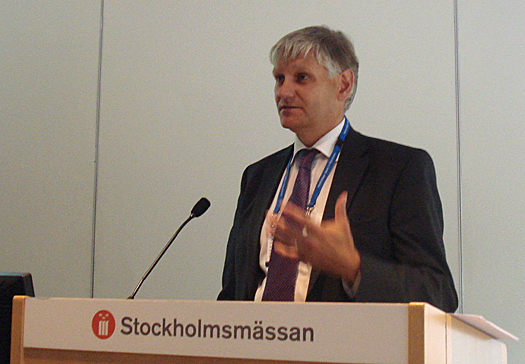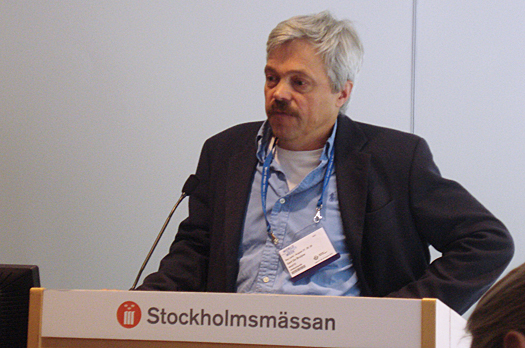Stockholm water week: Nutrient recovery from feces needs large scale approach
“There is a lot going on with nutrient recovery in the world. But only on a large scale it can be effective. The large scale is needed for the return on investment in the treatment phase of the recycling loop”. This was one of the closing remarks of Arnoud Passenier of the Dutch ministry of infrastructure and environment during a session on nutrient recovery at the Stockholm water week on August 29.
Phosphorous price exploded
The price of phosphorus rock has long been stable at 30 dollar per metric ton. In 2008 the price suddenly exploded to almost 350 dollar and is now seems to be stabilizing at around 180 dollar. This dramatic price increase has been a main driver for Dutch organisations, knowledge institutes and companies to sit together and talk about a joint effort to recycle phosphorous from waste water and animal manure.
Foundation of Dutch Nutrient platform
The idea is that it takes the Dutch water sector a tremendous effort to prevent the discharge of phosphate into surface water by costly treatment in manure and waste water treatment plants. These costs can be lowered if recovered phosphorous could be treated and sold as raw material for the fertilizer industry.
Contacts between the Dutch water sector, the fertilizer industry, the waste sector and farmer organisations lead to the establishment of the Nutrient Platform and the signing a joint Phosphate value chain agreement in 2011.
(read news item: Dutch take lead in phosphorus sustainability (October 4, 2011)
Create a market for recycled phosphorous
At the Stockholm Water Week Arnoud Passenier, as the Director of the agreement, explained the Dutch approach. He emphasized that the stakeholders have many different drivers to participate in the effort to set up a profitable closure of the phosphate loop. “We are now in the process of combining these drivers and create a market. It all comes down to building trust, ”said Passenier.
Organic material back into the soil
Passenier also raised the issue of the depletion of farm land in developing countiand said that the platform started talks with Mars Incorporated. “Mars expects that the demand for cacao will increase and to be able to keep producing chocolate bars in the future, the company has an interest that the global cocoa production goes up.”
Passenier: “Mars is worried about the depletion of the plantations as the soil is rapidly losing organic material as the production intensifies. Within the platform we are conducting a study in Ghana for collection the organic waste in the cities and bring it back into the soil at the cocoa plantations.”
First successful Ecosan-projects in Burkino Faso
The session in Stockholm made clear the quality of the blend of the fertilizer is an important success factor. Ger de Bruijne of the consultancy firm Waste NL told about successful projects in Burkina Faso where the excreta of over 6000 households was collected from special Ecosan toilets. “The collected excreta is now being sold to farmers. The potential of the nutrients in the human waste equals the amount of fertilizer that Burkina Faso annually imports ”, explained De Bruijne.
Discussion on role of Chinese investors
In rural areas the use human and animal excreta by farmers is very common. To scale up the recycling it takes large investors. The session made clear that the large Western waste companies are reluctant to step in. The message that the Ghana-based waste company Zoomlion has plans to build a large treatment plant to treat the waste collected from pit latrines, aroused discussion. Leading to the question why Chinese investors step in where Western investors hesitate.
First European Phosphorus conference
During the Stockholm water week the Dutch Nutrient Platform and the European Commission had talks about the establishment of a European equivalent of the Dutch platform. It was agreed to install a work group. One of the main tasks of this group will be te preparation of the first EU Sustainable phosphorus conference in Brussels in February 2013.
More information
Nutrient Platform
Secretary Ger Pannekoek g.pannekoek@nutrientplatform.org
The Hague, the Netherlands
+31 70 304 3734
www.nutrientplatform.org





